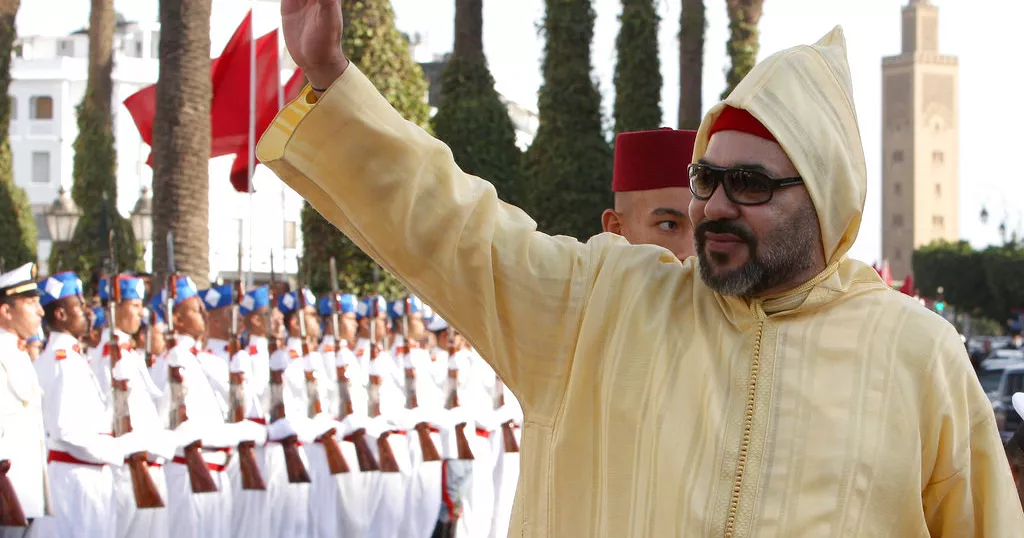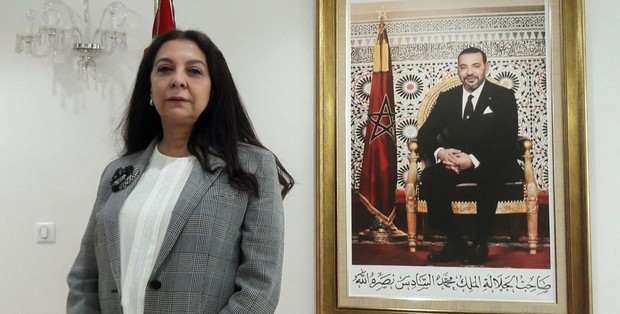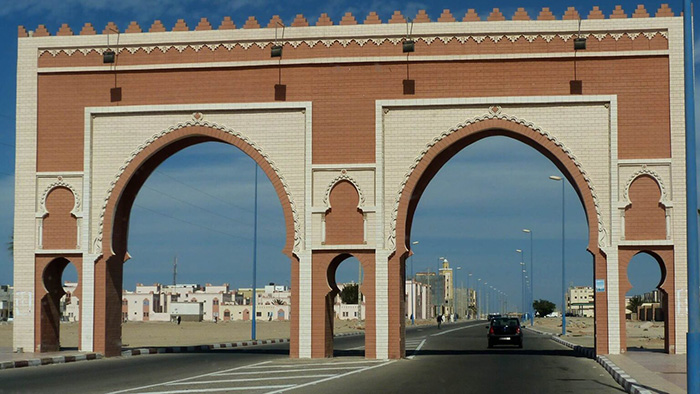When King Hassan II passed away on July 23, 1999, he was aware that his son, Prince Mohammed, who would inherit the throne of Morocco, would encounter numerous political, economic, and social challenges. To ease the transition, he made efforts to lay the groundwork for his son by fostering a historic reconciliation with the opposition, aiming to manage the substantial legacy without the violent power struggles that had persisted for over four decades.
Today, King Mohammed VI completes 25 years on the Moroccan throne, a period during which the country's image has changed on many fronts. Since ascending the throne, the new monarch has focused on catching up with the infrastructural delays and leveraging Morocco's strategic geographic location, as well as strengthening the country's diplomatic efforts. He inherited the complex Sahara issue and aimed to establish a more balanced political life and constitutional path. However, he also faced significant complications, especially regarding achieving spatial justice and ensuring adequate social services for all citizens.
Infrastructure: Closing the Gap
King Mohammed VI's ambitions regarding Morocco's infrastructure were clear; he aimed to make it a platform for economic takeoff and social development. In his speech on the third anniversary of his accession to the throne in 2002, he announced the commencement of studies and construction of a "massive port, commercial, and industrial complex on the Strait of Gibraltar, east of the city of Tangier." This referred to the "Tangier-Med Port," which has become the kingdom's most important economic platform and now ranks as the fourth most efficient port in the world and the first in Africa and the Euro-Mediterranean region, according to the World Bank.
During the past quarter-century, King Mohammed VI has succeeded in addressing many infrastructural deficiencies. Morocco has become the first African country to have a high-speed train connecting its four main economic centers: Tangier, Kenitra, Rabat, and Casablanca. There are future projects to expand this network to other major cities, including Marrakech, Agadir, and Fes. Morocco also has 1,800 kilometers of highways, with a government plan to increase this to 3,000 kilometers by 2030.
Improving infrastructure is one of the most significant achievements of Mohammed VI's reign. Morocco now boasts the second-best infrastructure on the continent, after South Africa, including railways, roads, airports, and ports. It ranks fifth in the Middle East and North Africa, after four Gulf countries: the UAE, Qatar, Bahrain, and Saudi Arabia, according to the World Economic Forum's Global Competitiveness Report 2023.
Diplomacy: A New Path Shaped by the Sahara Issue
Unlike his late father, King Mohammed VI is not very fond of official visits to countries around the world or participating in international summits. However, he certainly leads the diplomatic trajectory of his country, as foreign affairs are classified as "sovereign domains" and are also linked to the most sensitive and complex issue for Morocco such as the Sahara issue.
Over two and a half decades of King Mohammed VI's rule, a clear diplomatic path has emerged, based on several pillars. The first is parity, with Rabat now dealing with many countries, including major powers, on equal terms. The second is pragmatism or the "win-win partnership" approach, as described by the Moroccan Ministry of Foreign Affairs, and the third is non-interference in the internal affairs of other countries.
However, the primary and fundamental pillar remains the Sahara issue. Morocco presented an autonomy plan to the United Nations in 2007 as the maximum it could offer to resolve the issue. Therefore, "the territorial integrity of the kingdom" has always been a "red line" for its diplomacy, amid an increasing regional sovereignty conflict with Algeria, the energy-rich country that has supported the separatist Polisario Front for nearly half a century.
This stance was clearly expressed by the Moroccan monarch in his speech on the anniversary of the King and People's Revolution in 2022: "The Sahara issue is the lens through which Morocco views the world, and it is the clear and simple criterion by which the sincerity of friendships and the effectiveness of partnerships are measured." He addressed the international community, saying, "We expect some countries, Morocco's traditional and new partners, who hold unclear positions regarding the Moroccan Sahara, to clarify and reconsider their positions unequivocally."
These pillars explain why Morocco entered into political and economic disputes with Germany, Spain, and France, which eventually declared, in various forms, their support for the autonomy plan under Moroccan sovereignty. Rabat also succeeded in securing U.S. recognition of its sovereignty over the Sahara as part of a tripartite agreement that included restoring diplomatic relations with Israel, severed for 20 years. Morocco has also reversed decades of African support for the separatist position, with 20 African countries now having consulates in Laayoune and Dakhla, the largest cities in southern Morocco's Sahara.
A New Political Era
King Mohammed VI did not inherit the worst possible situation from his predecessor, King Hassan II, who ruled the kingdom for 38 years and had already overcome the most complex stages, which almost toppled his reign and cost him his life in the 1971 and 1972 coups. He had also ended the bone-crushing battle with the left and the opposition shortly before his death with the idea of a rotational government led by Abderrahmane Youssoufi, the leader of the Socialist Union of Popular Forces.
Nevertheless, the young king was aware that the "new era" could not begin without the state acknowledging its responsibility for past mistakes and attempting to address a heavy human rights legacy. Therefore, he signed a decree establishing the Equity and Reconciliation Commission in 2004, which documented testimonies of victims of gross human rights violations and provided compensation, although it did not lead to the prosecution of those involved in physical liquidation, enforced disappearance, and systematic torture.
Parliamentary and governmental experiences during King Mohammed VI's reign were more flexible. Although he faced criticism from the left for not choosing Youssoufi to lead the government again after the 2002 legislative elections, the first in his reign, which were won by the Socialists, preferring the technocrat Driss Jettou, he followed this approach in 2007. In 2011, it became a constitutional rule that led, for the first time and for two consecutive terms, to the Islamic Justice and Development Party leading the government.
The 2011 Constitution came in a dangerous regional context marked by revolutions that toppled several regimes in the Arab world. However, King Mohammed VI successfully navigated this phase by early on acknowledging the country's need for constitutional and institutional change. This led to the Islamists leading the political scene in the 2011 and 2016 legislative elections, resulting in a 10-year coexistence period between the monarchy and the Islamists, steering the kingdom away from the Egyptian scenario. Ultimately, it led to the return of the National Rally of Independents, led by businessman Aziz Akhannouch, to head the government after winning the 2021 elections.
Industrial Boom and Social Challenges
King Mohammed VI's reign has focused significantly on major economic projects, particularly industrial takeoff. During his reign, the automotive industry reached an unexpected level for a North African country. Thanks to several factories, especially the Renault Tangier plant, which alone produced around 288,000 cars in 2023, Morocco became one of the leading car suppliers to the European market.
Over the past quarter-century, Morocco has become one of the world's most important platforms for producing and exporting fertilizers. This is reflected in the sales of the OCP Group, the main player in this industry, which exceeded $9 billion in 2023. Aircraft manufacturing exports from Morocco rose from $2.8 billion in 2021 to nearly $3.8 billion in 2023. Rabat has officially announced its ambition to produce a fully Moroccan-made aircraft by 2030.
However, the kingdom still faces many challenges, mostly social. Despite significant investments in various public and private sector projects, successive governments have yet to find comprehensive solutions to unemployment. According to the High Commission for Planning's figures from May 2024, the number of unemployed people in Morocco exceeds 1.64 million, linked to consecutive years of drought and leading to the water crisis that the Moroccan monarch is tackling by constructing dams and desalination plants.
Morocco also suffers from social disparities and uneven economic development between major and small cities, rural and urban areas, and different regions. This was evident during the 2023 earthquake. While cities like Marrakech and Agadir have positively transformed in recent years, nearby rural areas in Al Haouz, Chichaoua, and Taroudant provinces still suffer from isolation and poverty. A report by the High Commission for Planning, less than a year ago, revealed that only three out of 12 regions, namely Casablanca-Settat, Rabat-Salé-Kénitra, and Tangier-Tetouan-Al Hoceima, contribute over 58% of the national GDP.
Morocco's problems are also related to social protection and labor conditions in both the public and private sectors. The country, which still suffers from low levels of public education, witnessed a long strike at the beginning of the last school year by teachers demanding higher wages and better working conditions. These protests then spread to the health sector and were later joined by court and local government employees.
It is clear that the king is aware that things have not been going perfectly in the social field. This is why he established the "New Development Model" committee at the end of 2019, tasked with identifying flaws and proposing alternative development plans to address them. The COVID-19 pandemic further highlighted these issues. Currently, the king personally oversees the comprehensive social protection project, including health coverage, while the kingdom prepares for a new generation of development projects ahead of co-hosting the 2030 World Cup with its European neighbors, Spain and Portugal.






